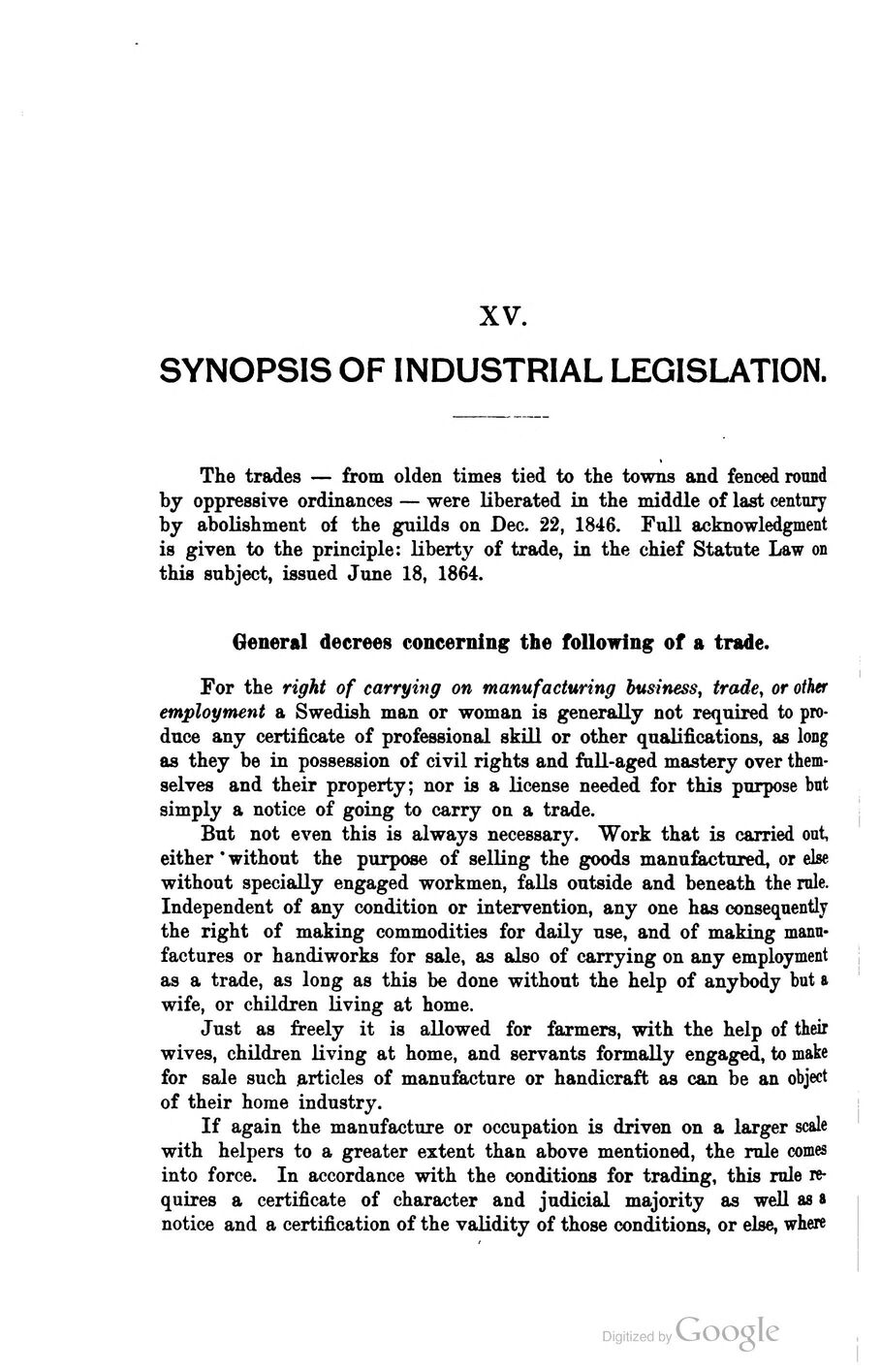
Full resolution (JPEG) - On this page / på denna sida - Second part - XV. Synopsis of Industrial Legislation. By A. Berencreutz, Chamberlain, Swedish-Norwegian Consul General, Copenhagen - General decrees concerning the following of a trade

<< prev. page << föreg. sida << >> nästa sida >> next page >>
Below is the raw OCR text
from the above scanned image.
Do you see an error? Proofread the page now!
Här nedan syns maskintolkade texten från faksimilbilden ovan.
Ser du något fel? Korrekturläs sidan nu!
This page has never been proofread. / Denna sida har aldrig korrekturlästs.
XV.
SYNOPSIS OF INDUSTRIAL LEGISLATION.
The trades — from olden times tied to the towns and fenced round
by oppressive ordinances — were liberated in the middle of last century
by abolishment of the guilds on Dec. 22, 1846. Full acknowledgment
is given to the principle: liberty of trade, in the chief Statute Law on
this subject, issued June 18, 1864.
General decrees concerning the following of a trade.
For the right of carrying on manufacturing business, trade, or other
employment a Swedish man or woman is generally not required to
produce any certificate of professional skill or other qualifications, as long
as they be in possession of civil rights and full-aged mastery over
themselves and their property; nor is a license needed for this purpose but
simply a notice of going to carry on a trade.
But not even this is always necessary. "Work that is carried out,
either ’ without the purpose of selling the goods manufactured, or else
without specially engaged workmen, falls outside and beneath the rule.
Independent of any condition or intervention, any one has consequently
the right of making commodities for daily use, and of making
manufactures or handiworks for sale, as also of carrying on any employment
as a trade, as long as this be done without the help of anybody but a
wife, or children living at home.
Just as freely it is allowed for farmers, with the help of their
wives, children living at home, and servants formally engaged, to make
for sale such articles of manufacture or handicraft as can be an object
of their home industry.
If again the manufacture or occupation is driven on a larger scale
with helpers to a greater extent than above mentioned, the rule comes
into force. In accordance with the conditions for trading, this rule
requires a certificate of character and judicial majority as well as»
notice and a certification of the validity of those conditions, or else, where
<< prev. page << föreg. sida << >> nästa sida >> next page >>